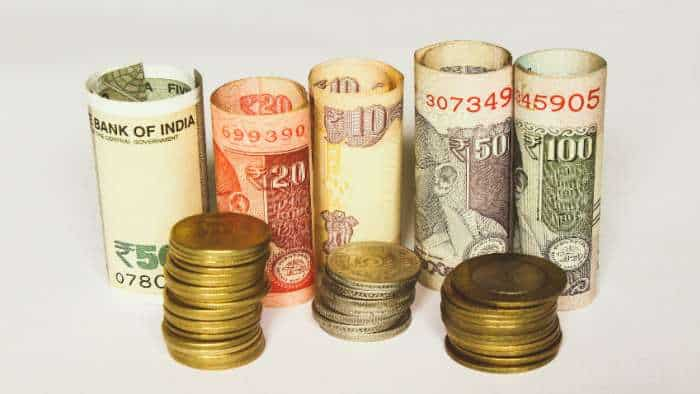India raises concerns over EU's carbon tax, deforestation regulation in WTO meeting
A number of countries, including India, Russia, and Brazil, have flagged concerns over European Union's (EU) carbon tax and deforestation regulation in a meeting of the World Trade Organisation (WTO) in Geneva, stating that these measures would affect their industries, an official said on Friday.
)
A number of countries, including India, Russia, and Brazil, have flagged concerns over European Union's (EU) carbon tax and deforestation regulation in a meeting of the World Trade Organisation (WTO) in Geneva, stating that these measures would affect their industries, an official said on Friday.
These countries raised the issues in a two-day meeting of the WTO's Council for Trade in Goods, which concluded on July 7 in Geneva.
On EU's deforestation regulation, India said that the agriculture sector in developing countries is a key driver for employment as well as economic well-being for a large part of the population and it was unfortunate that the EU is making policy choices, which "directly harmed" economic interests of these socio-economic groups, the Geneva-based trade official said.
The EU's regulation will enter into application on December 29, 2024, with an additional six months flexibility for small enterprises.
Nine WTO members - Indonesia, Russia, Brazil, Ecuador, India, Peru, Paraguay, Turkiye and Argentina cited concerns about the EU's new regulation on deforestation free products which entered into force on 29 June; operators and traders will have 18 months to implement the new rules. Further on the European Union's Carbon Border Adjustment Mechanism (CBAM), twelve WTO members including China, Russia, Brazil, Indonesia, Paraguay, and India raised their concerns.
Certain members stated that it is a unilateral measure that deviates from the basic principles of common but differentiated responsibilities and does not comply with the basic principles of non-discriminatory under the WTO.
Many also complained that the EU did not provide enough time for WTO members to comment on the measure before it enters into force in October.
The EU stated that it has been transparent throughout the design stage of CBAM and will continue to engage with members during the transitional period as it is gradually introduced through the end of 2025. The EU is introducing the Carbon Border Adjustment Mechanism (CBAM) from October 1 this year.
According to a report of the think-tank GTRI, CBAM would translate into a 20-35 per cent tax on select imports into the EU starting January 1, 2026.
From October, domestic companies from seven carbon-intensive sectors -- including steel, cement, fertiliser, aluminium and hydrocarbon products -- will have to seek compliance certificates from the EU authorities to comply with the CBAM norms. According to the GTRI report, from October 1, India's iron, steel and aluminium exports to European Union countries will face extra scrutiny under the mechanism.
From January 1, 2026, the EU will start collecting carbon tax on each consignment of steel, aluminium, cement, fertiliser, hydrogen and electricity. In 2022, India's 27 per cent exports of iron, steel and aluminium products worth USD 8.2 billion went to the EU.
Another report by the think-tank Global Trade Research Initiative (GTRI) has stated that India's exports of products like coffee, leather hides and paperboard worth USD 1.3 billion annually to the European Union will get impacted due to the deforestation regulation adopted by the EU earlier this week.
The Global Trade Research Initiative (GTRI) said that the EU-DR appears to prioritise protecting its own agricultural sector and promoting exports, making imports more difficult as it is a trade barrier disguised as a green measure.
The regulation covers cattle, buffalo, the meat of bovine animals, preparations, oil cake, soya beans, palm oil, cocoa bean, powder, chocolate, coffee, leather hide, skin, paper, paperboard, wood, wood articles, wood pulp, boards and wood furniture.
The exporters now have to ensure that these products have been grown on land, which has not been deforested after December 31, 2020.
The new rules will apply to large firms after 18 months and small firms after 24 months. Thus, the timeline for large firms is December 2024 and for small firms is June 2025.
The next formal meeting of the Council for Trade in Goods is scheduled for 30 November - 1 December 2023.
Get Latest Business News, Stock Market Updates and Videos; Check your tax outgo through Income Tax Calculator and save money through our Personal Finance coverage. Check Business Breaking News Live on Zee Business Twitter and Facebook. Subscribe on YouTube.
RECOMMENDED STORIES

Top 7 Flexi Cap Mutual Funds With up to 52% SIP Return in 1 Year: Rs 20,000 monthly SIP investment in No. 1 fund has generated Rs 3.02 lakh; know about others too

Sukanya Samriddhi Yojana vs PPF: Rs 1 lakh/year investment for 15 years; which can create larger corpus on maturity?
10:31 AM IST









 Small-scale fisher groups demand to keep fisheries subsidy negotiations out of WTO
Small-scale fisher groups demand to keep fisheries subsidy negotiations out of WTO Global trade growth to rebound this year; geopolitical tensions pose downside risks: WTO forecast
Global trade growth to rebound this year; geopolitical tensions pose downside risks: WTO forecast  Exports decline by 22% to USD 32.97 billion in June, steepest monthly fall in 3 years
Exports decline by 22% to USD 32.97 billion in June, steepest monthly fall in 3 years India seeks emergency meeting of WTO's General Council this month to discuss COVID package
India seeks emergency meeting of WTO's General Council this month to discuss COVID package India's import duties not high; within global trade norms of WTO: Government
India's import duties not high; within global trade norms of WTO: Government